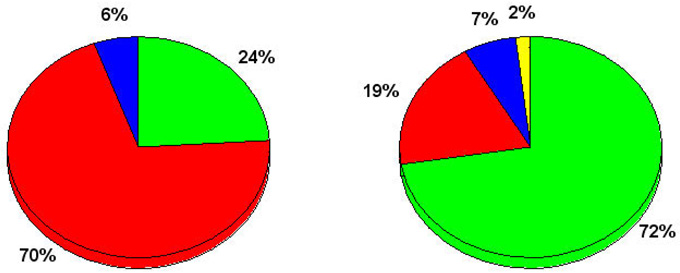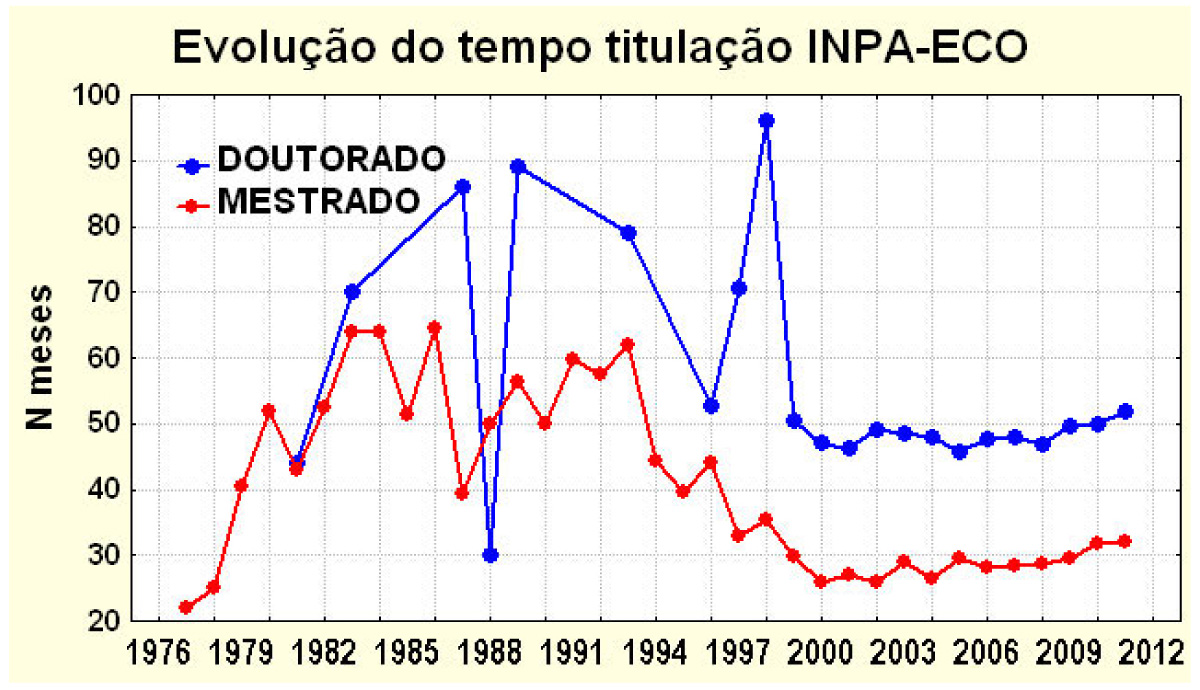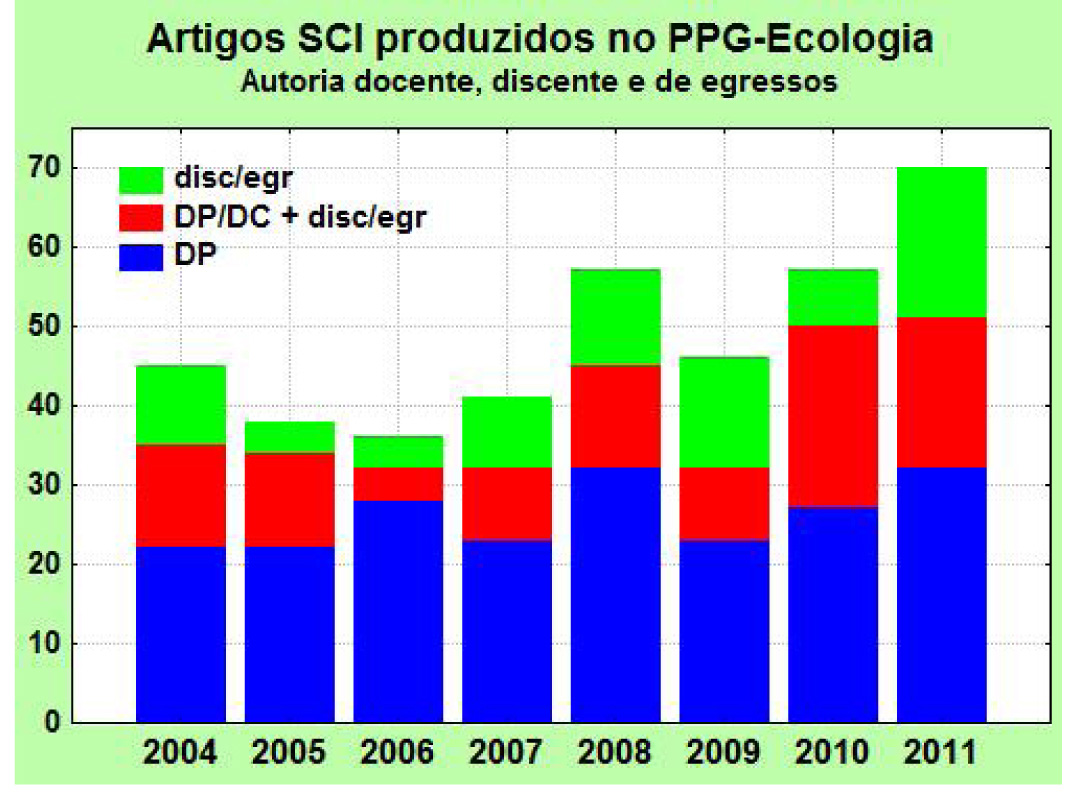Overview

INPA’s Graduate Program in Ecology was created in 1976 to train highly qualified professionals for research in tropical ecology, who will contribute knowledge about the biodiversity, ecosystems and the sustainable development of the Amazon region.
The Brazilian Western Amazon region is formed by the federal states of Amazonas, Acre, Rondônia and Roraima, and covers 26% of Brazil. In Brazil, there are 485 graduate programs in the research areas in which INPA is active (Biodiversty, Agricultural Sciences, Biological Sciences and Geosciences), but only 17 of those programs are located in the Western Amazon, nine of them at INPA. Three of INPA’s graduate programs are highly qualified, according to the criteria of the Capes Foundation, the governmental entity that evaluates and certifies graduate education in Brazil. Currently the Graduate Program in Ecology at INPA has qualification level 6, the second highest possible, and the only one of this kind in the Western Amazon.
The Program has 37 faculty members belonging to INPA and other research institutions in the states of Amazonas, Pará and Amapá. Faculty members are selected for their scientific productivity and the quality of their research in different fields. Almost half of them (46%) recieve productivity grants from the National Council for Scientific and Technological Development (CNPq), which are awarded in competitive nationwide selection processes. There are only seven recipients of the highest-level productivity grants (1A) in the Western Amazon, all of them at INPA, and five of them participate in the Ecology Program.
One of the Program’s most important priorities is to promote the establishment of qualified professionals for research and environmental management in Amazonian institutions. The Program has been largely successful in achieving that goal, considering that 70% of its students since 1976 came from outside the Amazon region, but up to 2008 72% remained in the Amazon after obtaining their masters or doctoral degree.

Origin (left) and destination (right) of alumni from the Graduate Program in Ecology at INPA from 1976 to 2008. GREEN = Brazilian Amazon; RED = other Brazilian regions; BLUE = other countries; YELLOW = unknown destination.
Ecology graduates from INPA work in over 30 institutions, including universities, research institutes, state agencies for environmental management, and environmental NGOs in all states of the Brazilian Amazon, as well as other Amazonian countries, such as Peru, Colombia, Ecuador and Venezuela.
Detailed knowledge about the biotic and abiotic components, as well as the functioning and resilience of ecosystems will be paramount to dealing with the challenges of global climate change and the conservation and sustainable use of biodiversity in the tropics. Therefore the program is based on the premise that cooperation in research and academic training on national and international level in the tropics is of fundamental importance.
The main focus is on regional institutional integration within the Brazilian Amazon, and also on cooperation with other Amazonian countries for student interchange and graduate training. We welcome students from abroad who want to pursue their masters or doctoral studies in Ecology at INPA. Information about forms of access to our courses is available on this website under the Masters and Doctorate tabs.
Between 1976 and 2015, 358 masters and 99 doctoral students obtained their degrees in INPA’s Graduate Program in Ecology.
Time from entry to graduation was quite variable in the first decades of the Program’s existence, but has stabilized since 2000 around 30 and 50 months for the masters and doctorate courses, respectively.

Evolution of graduation time for the masters (red) and doctoral (blue) courses in Ecology at INPA from 1977 to 2011.
Over time, the program´s research focus has shifted from basic knowledge about the components of Amazonian ecosystems to the evaluation of alternatives for the rational management of human interventions in the Amazon. Graduate studies should contribute to the development of chains of knowledge that support the implementation of well-informed decision-making about socioeconomic and conservation strategies in the Amazon.
Masters and doctoral theses in Ecology at INPA deal with questions ranging from population and community ecology of plants and animals, ecosystem functioning and carbon cycling, to the evolution, distribution and ecological and economic zoning of biodiversity, the estimation and cost of environmental services, and the carrying capacity of Amazonian ecosystems. Studies also focus on human ecology, the sustainable use of Amazonian resources and the consequences of large-scale impacts, such as deforestation, slash-and-burn farming, forest fragmentation, large hydroelectric dams and oil drilling, as well as the effects of managed forestry on plant and animal species and the factors that influence forest regeneration.
To maximize visibility of research results within the Program, and considering that most studies are financed by public funds, students are encouraged to publish their research in high-quality scientific outlets. The figure below shows how the proportion of scientific articles with student authorship within the Program has been evolving through time.

Scientific articles in JCR/SCI-indexed journals published by faculty and/or students of INPA’s Graduate Program in Ecology from 2004 to 2011. Color codes: BLUE - only faculty authors, RED - student and faculty authors, GREEN - only student authors. Articles with student authors refer only to those that resulted from thesis research.
We seek to train ecologists that are capable of understanding not only the interactions among living beings and the factors that influence their distribution and abundance, but also the integration of this information in large-scale models of regional system functioning. The Amazon region is in dire need of professionals that know how to find alternative solutions for old and new impacts on populations, communities (including human ones) and ecosystems.












